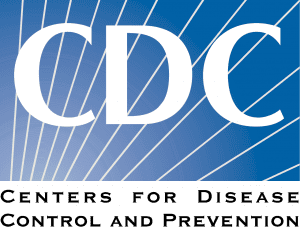- Covid-19 in Critically Ill Patients in the Seattle Region — Case Series
During the first 3 weeks of the Covid-19 outbreak in the Seattle area, the most common reasons for admission to the ICU were hypoxemic respiratory failure leading to mechanical ventilation, hypotension requiring vasopressor treatment, or both. Mortality among these critically ill patients was high.
- COVID-19: consider cytokine storm syndromes and immunosuppression.
Accumulating evidence suggests that a subgroup of patients with severe COVID-19 might have a cytokine storm syndrome. Authors recommend identification and treatment of hyperinflammation using existing, approved therapies with proven safety profiles to address the immediate need to reduce the rising mortality.
- The feasibility of convalescent plasma therapy in severe COVID-19 patients: a pilot study
This study showed CP therapy was well tolerated and could potentially improve the clinical outcomes through neutralizing viremia in severe COVID-19 cases
- Clinical and microbiological effect of a combination of hydroxychloroquine and azithromycin in 80 COVID-19 patients with at least a six-day follow up: an observational study
In 80 in-patients receiving a combination of hydroxychloroquine and azithromycin authors noted a clinical improvement in all but one 86 year-old patient who died, and one 74 year- old patient still in ICU. A rapid fall of nasopharyngeal viral load tested by qPCR was noted, with 83% negative at Day7, and 93% at Day8. Virus cultures from patient respiratory samples were negative in 97.5% patients at Day5. These results allowed patients to be rapidly discharged from contagious wards with a mean length of stay of five days. A modified National Early Warning Score [NEWS] was calculated and added age and temperature to characterize the severity of Covid-19 patients in the study. The NEWS score is one measure to facilitate cross study comparisons of future studies that are needed to replicate this exploratory study with adequate control groups. - FDA approved drugs with broad anti-coronaviral activity inhibit SARS-CoV-2 in vitro
Authors present data on 20 FDA approved drugs tested for antiviral activity against SARS-CoV-2 previously found to inhibit SARS-CoV and MERS-CoV. Seventeen of these also inhibit SARS-CoV-2 at a range of IC50 values at non-cytotoxic concentrations including hydroxychloroquine sulfate and chloroquine phosphate. - Landscape of SARS-CoV-2 vaccine candidates
A pdf from WHO listing vaccines in clinical (2) and pre-clinical (48) evaluation.
- UnitedHealth Group pushes self-collected COVID-19 test
In a study of 500 patients at UnitedHealth’s network of clinics in Seattle, diagnostic tests for SARS-CoV-2 accurately detected virus in more than 90% of known positive patients.
- SARS-CoV-2 Cell Entry Depends on ACE2 and TMPRSS2 and Is Blocked by a Clinically Proven Protease Inhibitor
TMPRSS2 is a cell protease known to cleave the spike glycoprotein of SARS-CoV, a step needed for virus entry into cells. In this paper, authors demonstrate that the protease is involved in entry of SARS-CoV-2 into cells in culture. A TMPRSS2 inhibitor approved for clinical use blocked virus entry into cells.
- The Ecology of Being Human by Dickson Despommier
Situation Dashboards

World Health Organization (WHO)

Johns Hopkins University (JHU)

COVID-19 in US and Canada






